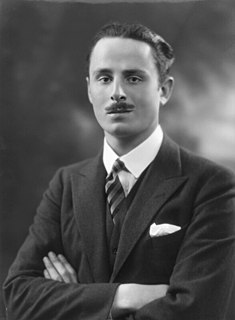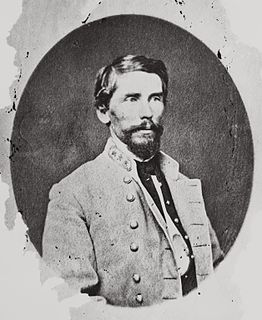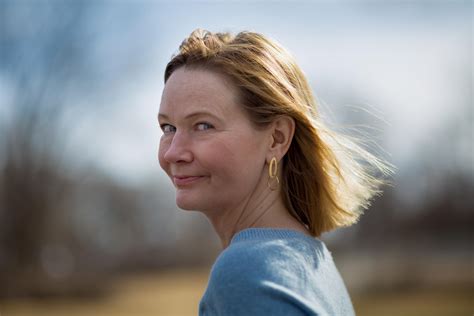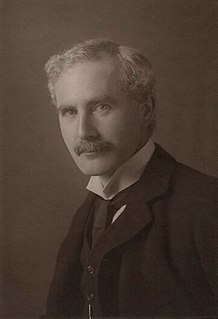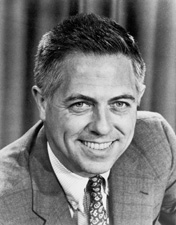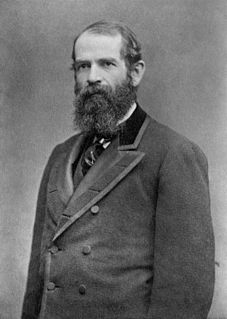A Quote by Oswald Mosley
the old axiom that 'all power corrupts' has doubtful validity, because it derives from our neglect of Plato's advice to find men carefully and train them by methods which make them fit for heroes.
Related Quotes
It has often been said that power corrupts. But it is perhaps equally important to realize that weakness, too, corrupts. Power corrupts the few, while weakness corrupts the many. Hatred, malice, rudeness, intolerance, and suspicion are the faults of weakness. The resentment of the weak does not spring from any injustice done to them but from their sense of inadequacy and impotence. We cannot win the weak by sharing our wealth with them. They feel our generosity as oppression.
Unconsciously we all have a standard by which we measure other men, and if we examine closely we find that this standard is a very simple one, and is this: we admire them, we envy them, for great qualities we ourselves lack. Hero worship consists in just that. Our heroes are men who do things which we recognize, with regret, and sometimes with a secret shame, that we cannot do. We find not much in ourselves to admire, we are always privately wanting to be like somebody else. If everybody was satisfied with himself, there would be no heroes.
We're taught Lord Acton's axiom: all power corrupts, absolute power corrupts absolutely. I believed that when I started these books, but I don't believe it's always true any more. Power doesn't always corrupt. Power can cleanse. What I believe is always true about power is that power always reveals.
Plato assumes somehow that government is a way in which you put unselfish and ungreedy men in charge of selfish and greedy men. But government is an institution whereby the people who have the greatest drive to get power over their fellow men, get in a position of controlling them. Look at the record of government. Where are these philosopher kings that Plato supposedly was trying to develop?
The mistakes (of leaders) are amplified by the numbers who follow them without question. Charismatic leaders tend to build up followings, power structures and these power structures tend to be taken over by people who are corruptible. I don't think that the old saw about 'power corrupts and absolute power corrupts absolutely' is accurate: I think power attracts the corruptible.
I am with the South in life or death, in victory or defeat. I believe the North is about to wage a brutal and unholy war on a people who have done them no wrong, in violation of the Constitution and the fundamental principles of government. They no longer acknowledge that all government derives its validity from the consent of the governed. They are about to invade our peaceful homes, destroy our property, and murder our men and dishonor our women. We propose no invasion of the North, no attack on them, and only ask to be left alone.
I watched them carefully, as always, searching for a sign of mental weakness. But there was none. Every man was coping well with the hardship, each one of them locked into his task. But it is one thing to practice, and quite another to race. And the trouble is, you never know who, on the day, will find it within his soul to give more than he has ever given before. It takes a kind of madness to compete like that, because of the will power and the ego, and his loyalty. And while some men have it, others have yet to find it. And a coach can only use his best judgement as to who those men will be.
What is true is that the idea of power corrupts. Power corrupts most rapidly those who believe in it, and it is they who will want it most. Obviously, our democratic system tends to give power to those who hunger for it and gives every opportunity to those who don't want power to avoid getting it. Not a very satisfactory arrangement if power corrupts those who believe in it and want it.
God has lent us the earth for our life; it is a great entail. It belongs as much to those who are to come after us, and whose names are already written in the book of creation, as to us; and we have no right, by anything that we do or neglect, to involve them in unnecessary penalties, or deprive them of benefits which it was in our power to bequeath.
The thing that got me about the Orphan Trains was that the experiences were so varied. Some of the kids went from neglect and hunger in New York to loving farm families who couldn't wait to fatten them up, who gave them medical care, an education, affection. And some of the kids became the victims of terrible cruelty, and more hunger, and more neglect - it all depended on who adopted them off of the train.
The desire to give advice is itself a symptom of disapproval; and further, it is usually the result of a desire to express that disapproval. And we are most moved to give advice to those for whom our affection and regard may be taken for granted, but to whom we would rather express our disapproval. We cannot go to them and say that we disapprove of them. That would not be affectionate, and might lead to reprisals. But we can give them advice in which the disapproval is implied and which yet seems innocently helpful.
It was the custom when men received nominations to come to me for contributions, and I made them and considered them good paying investments for the company. In a Republican district I was a strong Republican; in a Democratic district I was Democratic, and in doubtful districts I was doubtful. In politics I was an Erie Railroad man all the time.
